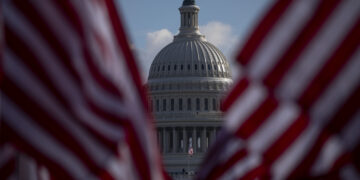May 27, 2020
State Department designation punishes Hong Kong for Beijing’s harmful policies
FOR IMMEDIATE RELEASE:
May 27, 2020
Contact: press@defensepriorities.org
WASHINGTON, DC—Today, The New York Times reported the State Department no longer considers Hong Kong to have significant autonomy from the government in Beijing. Defense Priorities Policy Director Benjamin H. Friedman issued the following statement in response:
“The announcement that the State Department no longer considers Hong Kong to be autonomous is an understandable effort to protect the partial independence Beijing promised when the city-state reverted to Chinese rule in 1997—but one likely to prove counterproductive. Trying to protect Hong Kong from China’s authoritarianism this way effectively punishes Hong Kong for China’s sins. The economic loss for Hong Kong and some U.S. firms would be heavy, while China’s harsh policies toward Hong Kong—let alone anywhere else—are unlikely to change.
“A situation like this—where a powerful rival threatens the liberties of a weak entity—should upset everyone with liberal sentiment. But it is difficult to translate sympathy into useful remedies. Eager to ‘do something’ when our conscience is provoked, but military means seem far too risky, we turn too easily to sanctions, a gesture of solidarity that rarely works. Whether or not revoking Hong Kong’s special trading rights counts as sanctions, it would harm mostly the people it’s meant to help.
“Under U.S. law, Hong Kong’s special status depends on it being certified as ‘sufficiently autonomous.’ It gets zero U.S. tariffs on exports, which it first enjoyed under British rule. With China moving to undercut its commitment to the ‘one country, two systems’ model it promised in 1997, Pompeo’s announcement is a warning the administration will revoke Hong’s Kong’s status if China goes ahead. In that sense, it is an understandable gambit.
“But China is unlikely to change course. If the U.S. revokes Hong Kong’s status, it is hard to see how either Hong Kong or Americans will benefit. Hong Kong’s special status helps generate an estimated $67 billion of annual trade of goods and services with the U.S. Because of Hong’s more open market access and proximity to China, it is also a hub for the thousands U.S. companies doing business there. Changing Hong Kong’s status will not only undercut Hong Kong’s exports and harm its economy, but also invite Chinese retaliation, like changing the rules benefiting U.S. firms there. Mainland China will suffer a bit but probably not enough to substantially change Beijing’s calculus.
“The alternative—relying on moral suasion and diplomacy, tying Hong Kong’s status to U.S. China trade talks—is also unlikely to work. But that attempt would at least avoid creating circumstances that might cause significant economic harm to the people of Hong Kong, and U.S. businesses, in a long shot bid to coerce China.”
More on Asia

By Jennifer Kavanagh and Dan Caldwell
July 9, 2025

Featuring Jennifer Kavanagh and Dan Caldwell
July 9, 2025

Featuring Lyle Goldstein
July 4, 2025






